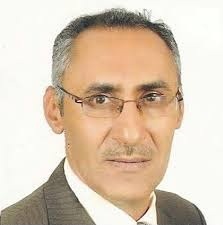
RNA – In an interview with Rasa News Agency, Mr. Abdullah al-Sharafi, a Yemeni political analyst and expert, referred to the negotiations between the Yemeni parties in Rimbo, Sweden and said, “The subject of the political process is not new and has been raised from the very beginning of the Arab coalition’s aggression against Yemen and has repeatedly been proposed by the Arab coalition to mislead public opinion in order to pretend that along with the war, they are seeking a political solution. Otherwise, the political strategy of the aggressors is nothing more than killing time on the battlefields.”
He added on to say that the topic of negotiations, which will led by the Special Envoy of the Secretary General for Yemen, Martin Griffiths, has a human dimension and making decisions for these negotiations will have humanitarian goals. The political dimension of the negotiations hasn’t been ascertained at this time but it’s possible that the political dimension may be the agreement between the Yemeni parties and the attack by the coalition of the port of al-Hudaydah or the Yemeni missile attacks on Saudi positions. However, the political dimension of the negotiations must be within the framework of ending the aggression of the Arab coalition against Yemen.
Mr. al-Sharafi referred to the positions that may be taken by the Saudis after the negotiations in Sweden and said, “The Arab coalition has committed a great number of crimes against Yemen, both against the rights of the people of this country and also against its infrastructure and government centres. Saudi Arabia and the coalition under the command of this country are required to assume responsibility for the crimes they have committed and compensate Yemen for this but it’s clear that from a dominant position and power, the United States and Western countries have turned Saudi decisions into passive decisions.”
He concluded, “The results of the negotiations in Sweden may be in the same direction as Abd-Rabbuh Mansour Hadi [President of Yemen] sought through the National Dialogue and the Initiative of the Gulf Cooperation Council (GCC). But Ansarullah seeks out the results that could end the crisis in Yemen and solutions have been presented from the negotiations in Sweden, such that in addition to the political crisis, the economic crisis in the country can also be solved.”
For only the second time since the conflict began, officials from President Abd-Rabbuh Mansour Hadi’s government and representatives from the Ansarullah Islamic Resistance Movement joined the negotiations aimed at discussing ways to end the Saudi-led war that has killed an estimated 56,000 people and left a staggering 22 million needing humanitarian assistance.
Rasa News Agency
112/975